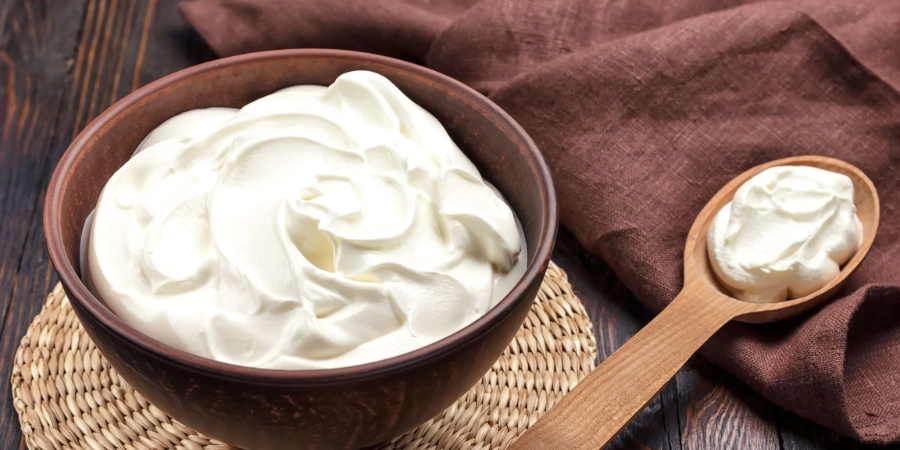Sour cream is a popular ingredient in various cuisines, often used as a topping, dip, or cooking component. But is sour cream healthy? This question has sparked debates among nutritionists and food enthusiasts alike. In this article, we will dive deep into the nutritional profile of sour cream, its health benefits, potential drawbacks, and how it fits into a balanced diet.
What is Sour Cream?
Sour cream is a dairy product made by fermenting cream with specific kinds of lactic acid bacteria. This fermentation process gives sour cream its characteristic tangy flavor and thick texture. It’s commonly used in dishes like baked potatoes, tacos, and dips.
Nutritional Profile of Sour Cream
To understand whether sour cream is healthy, we need to look at its nutritional content. Here’s a breakdown of the nutrition facts for one tablespoon (about 15 grams) of regular sour cream:
| Nutrient | Amount per Serving |
|---|---|
| Calories | 30 |
| Total Fat | 3 g |
| Saturated Fat | 1.5 g |
| Cholesterol | 10 mg |
| Sodium | 15 mg |
| Total Carbohydrates | 1 g |
| Protein | 1 g |
| Calcium | 2% DV |
Types of Sour Cream
There are several types of sour cream available:
- Regular Sour Cream: Full-fat version, rich in flavor.
- Light Sour Cream: Lower in fat and calories.
- Non-Fat Sour Cream: Contains little to no fat.
- Greek Yogurt: A healthier alternative that can be used similarly.
Health Benefits of Sour Cream
- Source of Nutrients: Sour cream contains essential nutrients like calcium and phosphorus, which are vital for bone health. A single serving provides about 2% of the daily value (DV) for calcium.
- Probiotics: The fermentation process introduces beneficial bacteria known as probiotics. These can support gut health by promoting a balanced microbiome. Research suggests that probiotics may help with digestion and boost the immune system.
- Versatile Ingredient: Sour cream can enhance the flavor and texture of various dishes without requiring large quantities. This versatility means you can enjoy it in moderation without overindulging.
- Good Source of Healthy Fats: While sour cream does contain saturated fat, it also provides healthy fats that can be beneficial when consumed in moderation. Healthy fats are essential for nutrient absorption and hormone production.
Potential Drawbacks of Sour Cream
- High in Calories and Fat: One tablespoon contains about 30 calories and 3 grams of fat, which can add up quickly if you’re not careful. If you’re watching your calorie intake, consider using it sparingly.
- Lactose Intolerance: For individuals who are lactose intolerant, sour cream may cause digestive issues such as bloating or discomfort. In such cases, lactose-free alternatives or Greek yogurt can be better options.
- Sodium Content: While sour cream is relatively low in sodium compared to other condiments, it still contains some salt. For those on a low-sodium diet, it’s important to monitor intake.
How to Incorporate Sour Cream into Your Diet
If you’re wondering how to enjoy sour cream while maintaining a healthy lifestyle, consider these tips:
- Use as a Dip: Pair it with fresh vegetables instead of chips.
- Mix into Dishes: Stir into soups or casseroles for added creaminess.
- Top Your Meals: Use it as a topping for baked potatoes or chili.
- Substitute in Recipes: Replace mayonnaise or heavy creams with sour cream in recipes.
Healthier Alternatives to Sour Cream
If you’re looking for healthier options that provide similar textures or flavors, consider these alternatives:
- Greek Yogurt: High in protein and lower in fat.
- Cottage Cheese: A good source of protein with fewer calories.
- Avocado: Offers healthy fats and a creamy texture.
- Silken Tofu: A vegan option that can be blended for smoothness.
Real-Life Examples
To illustrate how sour cream can fit into a healthy diet, let’s look at two scenarios:
The Busy Professional: Sarah is a busy professional who enjoys cooking but often opts for quick meals due to her hectic schedule. She uses light sour cream as a topping for her baked potatoes loaded with veggies after a long day at work. This choice allows her to enjoy comfort food while keeping her meal balanced.
The Health-Conscious Athlete: John is an athlete focused on maintaining his performance through nutrition. He uses Greek yogurt instead of sour cream in his smoothies and dips because it provides more protein without the additional calories from fat. This substitution helps him meet his dietary goals without sacrificing taste.
Conclusion: Is Sour Cream Healthy?
So, is sour cream healthy? The answer isn’t black and white; it depends on how you use it within your overall diet.
Sour cream offers several health benefits when consumed in moderation, including being a source of essential nutrients and probiotics. However, it’s crucial to be mindful of its calorie and fat content if you’re trying to manage your weight or dietary intake.
Ultimately, incorporating sour cream into your meals can be part of a balanced diet if done thoughtfully. Whether you choose regular sour cream or opt for healthier alternatives like Greek yogurt, the key is moderation and balance.
Final Thoughts
In conclusion, enjoy your sour cream! Use it wisely as part of diverse meals that emphasize whole foods like vegetables, lean proteins, and whole grains. By doing so, you’ll savor its rich flavor while also supporting your health goals.
By understanding both the benefits and drawbacks associated with sour cream consumption, you can make informed choices that align with your health objectives while enjoying this beloved dairy product!


